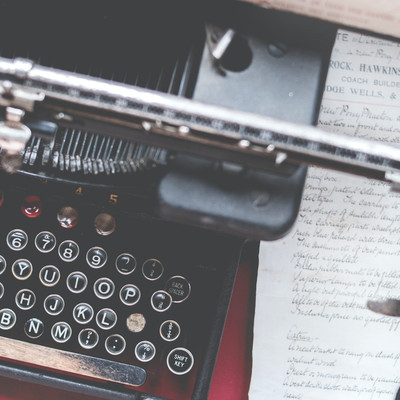Our memory: How memories work & why they are so important
We remember the fragrance of the deceased grandma’s apple pie or the red paint of uncle’s antique car, which was only allowed to leave the garage on sunny days. But, the first kiss or the first night in the new home are etched into our memory just as deeply. In addition, our brain has stored enough knowledge to complete tasks that we need to carry out in our daily routines. For example, the ability to drive a car, prepare our favorite dish or do the gardening. We can therefore rightly say: Our memory is a jack of all trades. But, how do memories actually work? What do algorithms have to do with memories? And why are memories so important? You will find the answers in this blog post.
Our personal algorithm
It is a ubiquitous phenomenon in the realm of social media: the so-called algorithm. Simply put, it is a system operating in the background that pre-sorts and filters all messages, postings and information. Afterwards, we only get to see a fraction of the information - reduced to what is relevant to us. The situation is similar with our memory: Much of what we experience or learn is committed to memory - but not everything. Because only information of relevance will stick. And: The older we become, the harder we have to work for our capacity for remembering. Our brain relies on three memory disk to store information:
- Sensory memory: This area is also called ultra-short-term memory, as it stores information we hear or see only for a very short time – often only for two seconds. We need it, for example, for our capacity to follow a conversation or watch a movie. Our brain then immediately switches to evaluation mode: Everything that we deem relevant or retrieve again within a very short time is transferred to our short-term memory. Conversely, everything that is not of interest to us will be erased immediately to make room for new experiences.
- Short-term memory: The next stage is the short-term memory, also called working memory. It stores information for seconds and up to a few minutes. Researchers assume that it has the capacity to store approximately seven thoughts and keep them ready for retrieval for up to 20 minutes. For example, we will remember whom to call back, what groceries we have to buy or where we have placed the car key.
- Long-term memory: Lastly, we also possess a long-term memory. Information transferred here is stored permanently - often for the rest of our lives. The long-term memory is further divided into a declarative and an implicit portion, which is also referred to as procedural memory. All information that can be consciously retrieved is anchored in declarative memory. This information comprises, for example, childhood experiences, professional knowledge, language skills or such dramatic episodes in our lives as the first kiss, our wedding or the birth of a child. By contrast, information stored in implicit memory is retrieved unwittingly. Which means: We do something without thinking much about it - as if the processes involved had already become second nature. Examples include swimming, cycling or driving.
Limbic system as a guard
The decision as to which information will stick and be committed to permanent memory is made by a no-nonsense guard: the limbic system. Aside from regulating our affective response and instinctive behavior, the system evaluates whether a news item is important, good, bad or, at least, funny. Information that arouses strong feelings in us is particularly likely to be stored in our memory. Therefore, life-turning events will find their way into our long-term memory with ease. Conversely, matters that do not interest us will rarely be granted entry into our memory. This is why we dislike studying for subjects at school that we find boring. And: Many people also have a hard time remembering numbers.
Sleep as the time to store information
How does that work exactly? Well, everything we see or hear first reaches our limbic system via neural pathways. This system stretches like a ribbon around the so-called corpus callosum. Everything that this part of the brain subsequently considers to be important is transmitted further to the cerebral cortex, the outer layer consisting of several billion neurons. The memories are transferred to different storage locations from where they can be retrieved at a later time if necessary. The process of storing important thoughts and experiences in long-term memory takes a good 24 hours and happens especially at night. This is because the night is the time when new stimuli do not constantly hit the brain, allowing the brain to consolidate the existing information in peace. New things are linked to already existing memories if the brain discovers, for example, similarities between them.
Jogging the memory’s memory
Every thought thus leaves a trace in the brain that it will be able to find again later - provided that these are not impressions stored in sensory memory. But, this raging flood of thoughts will slowly dwindle with age or due to illnesses. However, regular exercise can have a positive effect on brain fitness. Ideal practices for this purpose are reading, writing, calculating, discussing, playing music or, generally speaking, any kind of creative activity. Sport is another fitness booster that enhances both physical fitness and the blood flow through the brain. At the same time, however, it is also essential to forget matters that are unimportant or burdensome. Otherwise, we run the risk of drowning in the floods of information.
Why are memories important?
How do memories work? – That question we have now answered. But why are memories so important? Firstly, of course, as a mandatory prerequisite for managing our everyday lives. Just imagine we had to learn anew every day how to type on a keyboard or operate the washing machine. However, memories also strengthen the sense of belonging to a community, remind us about the things we have already achieved in life or trigger certain emotions. Memories are especially indispensable when it comes to shaping our own identity. Without them, our personality would crumble. By the way, the psychoanalyst Sigmund Freud described the tendency to frequently access memories, particularly negative ones, as a "repetition compulsion". People who suffer from depression, for example, like to preserve - consciously or unconsciously - old experiences and always return to familiar patterns of interaction. Healthy people, on the other hand, incorporate new experiences into their existence. Especially the cultural sphere of the Western world generally attaches primary importance to the Culture of Remembrance. Here, the collective memory serves as a means to cope with the past and shape the future at the same time. But, as with many other things, this research field still has to deal with many unanswered questions - we only know a fraction of how memories actually work.

Reminder of beloved persons
Remembrance is also the focus of everything we do at Mevisto - namely remembering loved ones or animals: We make unique gemstones or pearls, from ashes or hair, enabling you to carry dearly departed humans or animals close to you at all times. To craft such a lasting memory, we only need 10 g of hair or 50 to 100 g of ashes.




